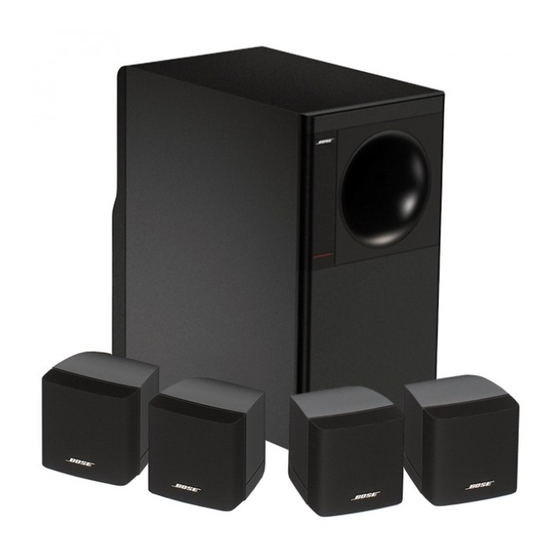Overview
This application note covers the basic concepts for
the application of the Freespace 3 system loud-
speaker in business music systems.
The Freespace 3 system is ideally suited to back-
ground and foreground music applications with
mounting heights between 8 and 16ft (2.4 to 4.8m).
The 2.25 inch driver used in the Freespace 3 system
provides more consistent coverage in medium and
low ceiling applications, compared to other loud-
speakers, and the Acoustimass
vides deep, rich bass that appears to fill the room.
The Freespace 3 system is compatible with 70V, 100V
and 8 Ohm amplifiers and is capable of delivering up
to 95 dB
in a typical application with a 12ft (3.5m),
sPL
mounting height.
All system designs begin with a set of requirements.
The system requirements can be as simple as "it has
to sound great," or as detailed as "it must have an
output level of 100 dB
sPL
lenge is to gather the right set of requirements and
convert them into a set of design criteria to use in
creating your design.
The three key requirements that you need to identi-
fy in order to deliver the right business music sound
system are:
Loudness What sound pressure level is required
for this application?
Response What bandwidth is required for the
type of program material that will be used?
CoveRage How consistent must the sound be
across the entire coverage area?
Bose Professional systems Division
bass module pro-
®
". in either case, the chal-
FreeSpace
3 System
®
Prod uct Specifications
Frequency Range
Long Term Power Handling
Sensitivity
Impedance
Maximum Acoustic Output
Dispersion
each of these requirements can be easily converted
into a specification that we can use to create our
system design. if we understand the customer's
needs in these three areas, we can deliver a design
that will, at a minimum, meet their needs, and at
best exceed their expectations.
For the purposes of this application note, we will
assume that you are familiar with the system
requirements for a business music system and are
ready to focus on the creation of a loudspeaker
layout using the Freespace 3 system.
Design Guidelines
When creating a design that uses the Freespace 3
system, you should consider the following:
• Recommended mounting height for Satellites is
between 8 and 16ft (2.4 and 4.8m).
• A single Satellite, mounted at 12ft (3.5m), covers
an area with a diam of 25ft (7.5m).
• One Satellite should always be placed near the
bass module to further reduce localization.
• Whenever possible mount the bass module against
a large, solid surface, and ideally in a corner.
• Rooms with a ceiling height less than 14ft (4m)
require one bass module for every two satellites.
• Maximum SPL for a typical application is between
85 and 90 db
.
sPL
• Always add 25% headroom to your amplifier to
accommodate various types of program material.
50Hz – 16kHz ± 3dB
100 watts continuous
82 dB-SPL @ 1W/1m (pink noise)
N/A
102 dB-SPL @ 1m (pink noise)
170° Conical (Satellite)
Omni-directional (bass)
1
p r o . B o s e . c o m
4
OF

